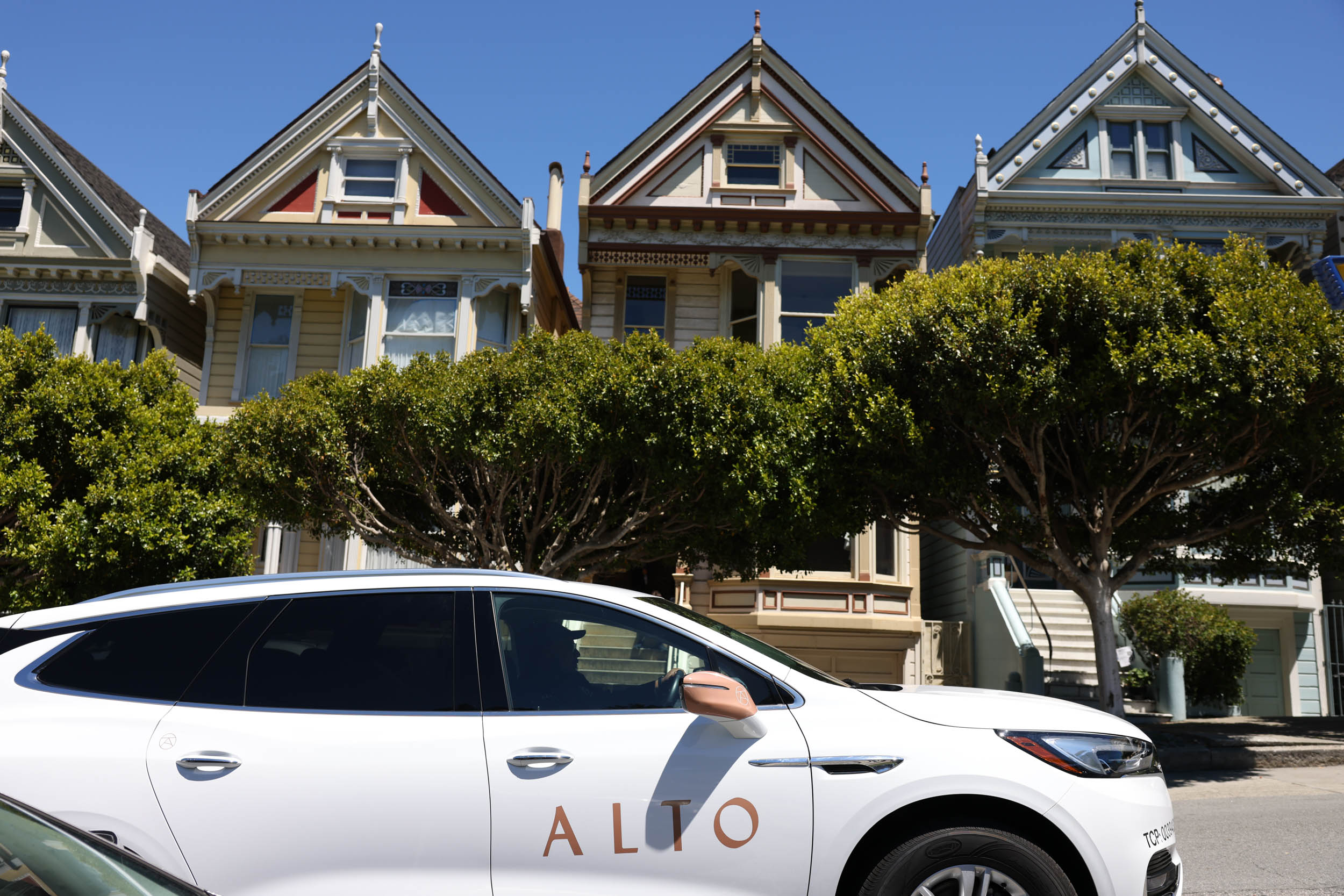San Franciscans looking for a more bespoke rideshare experience—and willing to pay for the privilege—have a new option to tap on their phone.
Dallas-based Alto, a ridesharing competitor to the likes of Uber and Lyft, has launched in the city with a model that hinges on drivers that are W-2 employees, rather than a network of independent contractors. Alto has raised around $60 million from investors, including a $45 million Series B last year.
Alto’s San Francisco drivers are paid around $19.50 an hour, plus company-sponsored benefits including healthcare, dental, vision, workers compensation and a 401(k) plan. Drivers on the platform are also subject to background checks and a multi-day training process. The company’s San Francisco launch builds on an expansion in Silicon Valley that started in March.
Alto is rolling out its San Francisco service in an area that roughly corresponds to the eastern half of the city down into the Peninsula, and operating hours span from 5 a.m. to 10 p.m. most days. Operating hours on Friday run from 5 a.m. to midnight, 7 a.m. to midnight on Saturday and 7 a.m. to 10 p.m. on Sundays.
Alto CEO Will Coleman admits that a majority of rideshare users choose their service based simply on a price—a number he tags at around 60-70% of riders. The remainder, who he says are tired of playing “rideshare roulette,” are up for grabs.
“By decommoditizing the product, creating a safer, more consistent, more hospitable experience for passengers and drivers alike—one that’s frankly, a couple of dollars more expensive—that gives us an ability to create a better business for ourselves, for our investors and ultimately serve cities more sustainably as well,” Coleman said.
The company owns its own fleet of Buick and Volkswagen SUVs that are centrally dispatched and warehoused, which allows them more control over quality and experience than rideshare competitors.
So how much more does Alto’s service cost? On average, 50-100% more than an UberX. However, Colemen argued that when compared to Uber’s higher-level Uber Black option, Alto’s are 30-50% cheaper.
Much of Alto’s customer base are working professionals that are active rideshare users for their business activities. (Think people riding using someone else’s money.)
Alto also focuses on women, who may have heightened safety concerns both as riders and drivers. Coleman said 56% of Alto’s riders and 33% of its drivers are women, compared to 32% and 11% for Uber, respectively.
Alto was launched with the idea that they wouldn’t be able to compete with the short wait times offered by its competitors, which Coleman attributes to an “oversupply” of drivers.
“We’ll never pick you up in less than 10 minutes, even if the car is two minutes away from you,” Coleman said. “We want to train you to plan 10 minutes in advance and set that expectation.”
Plus, he said drivers won’t leave riders hanging since they’re paid by the hour, instead of the trip.
Alto customers are given the option of purchasing a membership that starts at $12.95 a month, or $99 annually, that provides access to the company’s full fleet of vehicles and offers perks including discounts or free rides.
Coleman said that consumers have been a big winner over the past few years as venture capital and public investment has served to subsidize rides from Uber and Lyft in service of faster growth. But, he said, that approach also had harmful impacts on cities and drivers.
“We don’t want to build a brand and a business based on a need to constantly subsidize our product,” Coleman said. “If you’re going to be paying the fair price, well, then you might as well pay the fair price for something that is consistent and differentiated.”
